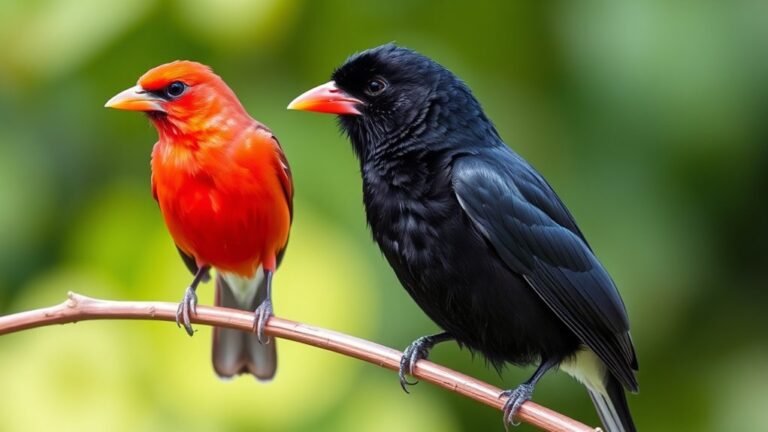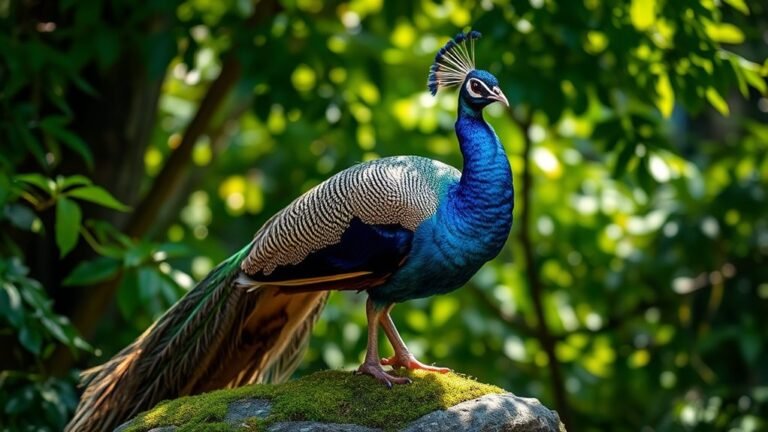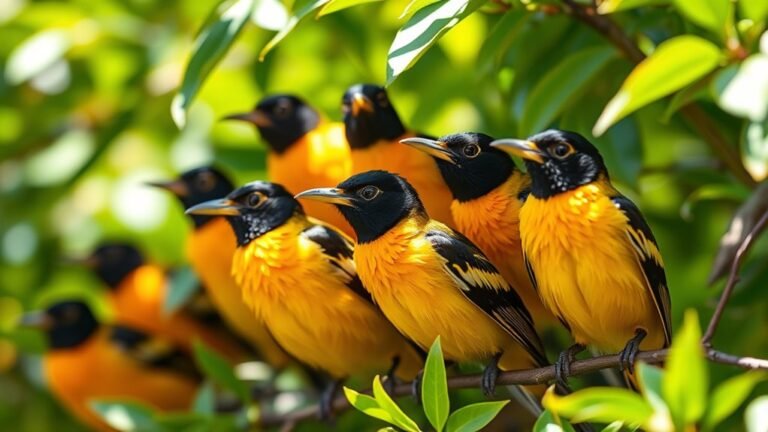How Long Do Birds Typically Live?
Birds live for different lengths of time depending on their species. For example, city pigeons usually live about 3 to 5 years. On the other hand, pet birds like cockatiels can live more than 20 years! Their diet and where they live affect how long they live. Knowing these factors can help you understand how to care for your feathered friends. But what about birds that are not pets? Let's explore that!
A Quick Overview
How Long Do Birds Typically Live?
Birds have different lifespans depending on their species and living conditions.
- City pigeons usually live about 3 to 5 years. They face many challenges, like pollution and danger from cars.
- Pet birds such as cockatiels and budgies can live from 10 to 20 years if they are cared for well. They thrive in safe and loving homes.
- Parrots are known for living a long time. Some can live 50 years or even longer!
- Many songbirds live between 2 to 15 years. Their lifespan can change based on where they live and what they eat.
Bird health and how long they live can be affected by their environment and dangers from predators. Taking care of birds properly can help them live longer, happier lives.
Average Lifespans of Common Bird Species

Birds have different lifespans based on where they live and how they're treated. For example, city pigeons usually live for only 3 to 5 years. This short life is often due to human impact and environmental challenges.
On the other hand, pet birds like cockatiels and budgies can live much longer, often reaching 10 to 20 years. They do this because they get good care and live in a steady environment.
These differences show that a bird's surroundings play a big role in how long it lives. By learning about these lifespans, you can create better homes for both wild and pet birds. Happier, safer environments help them live longer and healthier lives.
Factors Influencing Bird Longevity

Many things help birds live longer lives. Three important factors are habitat quality, diet, and genetics.
First, the place where birds live matters a lot. A clean and safe environment helps birds stay healthy and live longer. Birds that have good homes are less stressed and can thrive better.
Next, what birds eat is very important. A good diet that has plenty of nutrients helps them fight off sickness and age well. If birds eat poorly, they may not live as long.
The chance of being hunted by predators also affects bird lifespans. Birds that live in safer areas usually have longer lives. In places where many predators are around, birds can face danger and may not live as long.
Knowing about these factors helps us appreciate birds more. It also helps us create better living spaces for them, so they can feel safe and happy, and perhaps live longer lives.
Comparison of Lifespans Across Bird Families

Birds live for different lengths of time depending on their families. Some birds, like parrots, can live a long time, often into their 50s.
On the other hand, many songbirds don't live as long—they usually last between 2 and 15 years.
Here are some reasons why different birds live for different amounts of time:
- Size and Metabolism: Bigger birds often have slower metabolisms, which helps them live longer.
- Reproductive Strategies: Birds that have fewer babies, like parrots, tend to live longer.
- Social Structures: Birds that have more social behaviors, such as certain songbirds, can have different lifespans based on how they interact with their environment.
Understanding why birds live as long as they do can help you appreciate the variety of bird life around us.
The Impact of Environment on Bird Lifespan
Birds live longer in good environments. If they've plenty of food and safe places to nest, they tend to be healthier and live longer.
On the other hand, if their homes are damaged or dirty, they get stressed. This stress can make it harder for them to raise their young and survive.
Predators also affect how long birds live. In places with many predators, birds can learn to avoid danger, but this comes with stress and extra energy use.
For example, birds in cities might face more predators and less space, making it tough for them.
Understanding how the environment affects birds helps us see how important every detail is for their survival.
Each change in nature can make a big difference in how long they live and how well they thrive.
Conservation Efforts and Their Role in Avian Survival
Conservation efforts are important for helping birds survive. Even if you can't see changes right away, these programs make a big difference.
- Habitat Restoration: When we restore habitats, we create safe places where birds can live and grow. This helps bird populations stay healthy.
- Breeding Programs: Breeding endangered birds in safe environments helps increase their numbers. This also keeps their gene pool strong, which is important for their survival in nature.
- Community Involvement: Getting local people involved in conservation helps make lasting changes. This benefits both the community and the birds.
All these actions help our ecosystems stay strong.
Your support can make a real difference for birds. Together, we can create a brighter future for our feathered friends.
Frequently Asked Questions
Do Pet Birds Live Longer Than Wild Birds?
Pet birds usually live longer than wild birds. This is because pet birds live in cages where they are safe and get regular care. They have food, water, and keep away from dangers like predators. Also, pet birds spend time with people, which makes them happy. All these things help pet birds live longer than their wild friends.
What Is the Oldest Recorded Bird Species?
Did you know that the oldest bird we know about is the Archaeopteryx? This bird lived many millions of years ago! It had feathers like a bird but also the features of a dinosaur.
Today, the Kakapo is the oldest living parrot. Many people find it interesting because it can live for many years and has some special qualities. This makes the Kakapo a favorite among bird lovers.
Isn't it cool to learn about these amazing birds?
How Does Diet Affect a Bird's Lifespan?
Birds need good food to live long and healthy lives. When birds eat balanced meals, they feel better, get sick less often, and can have more baby birds. This good diet helps them live longer and makes the bird community around us thrive. Simple foods like seeds, fruits, and vegetables can really make a difference in how long our feathered friends stick around. Taking care of their diet is one of the best ways to support their health and happiness.
Can Bird Species Be Bred for Longer Lives?
You can breed birds to help them live longer lives. This is done by choosing birds that have traits that help them stay healthy and live longer. When you focus on these traits, you can create new generations of birds that are stronger and live better lives. It's all about making smart choices when breeding to support bird health and longevity.
Are There Any Health Issues That Shorten Bird Lifespans?
Yes, diseases and where birds live can affect how long they live. Birds need good food, a safe home, and low stress to stay healthy. If they don't have these things, they can get sick more easily. This can shorten their lives. We all love these amazing creatures, so it's important to take care of them!

Luna is the passionate founder and author of Birds and You, a website dedicated to sharing her love for birds with fellow enthusiasts. Through her engaging articles and guides, she aims to educate and inspire others to explore the fascinating world of birds. When she’s not writing, you can find Luna observing birds in their natural habitats or sharing beautiful bird photography on Pinterest. Join her on this journey to celebrate and protect our feathered friends!







